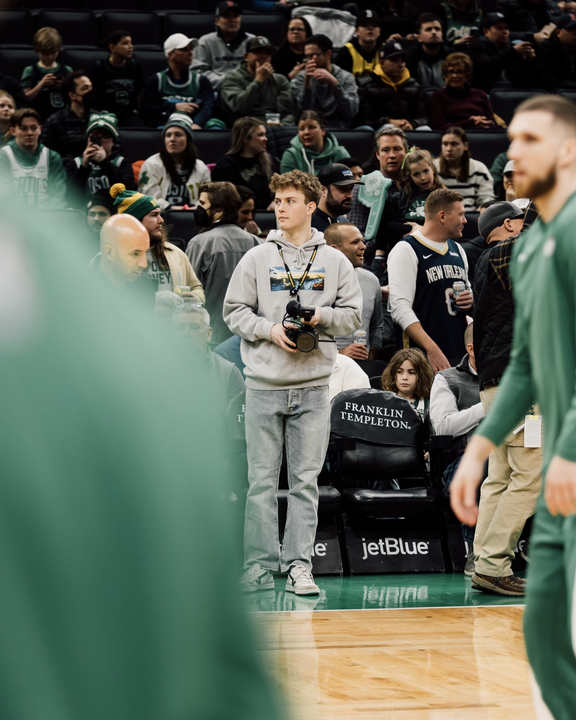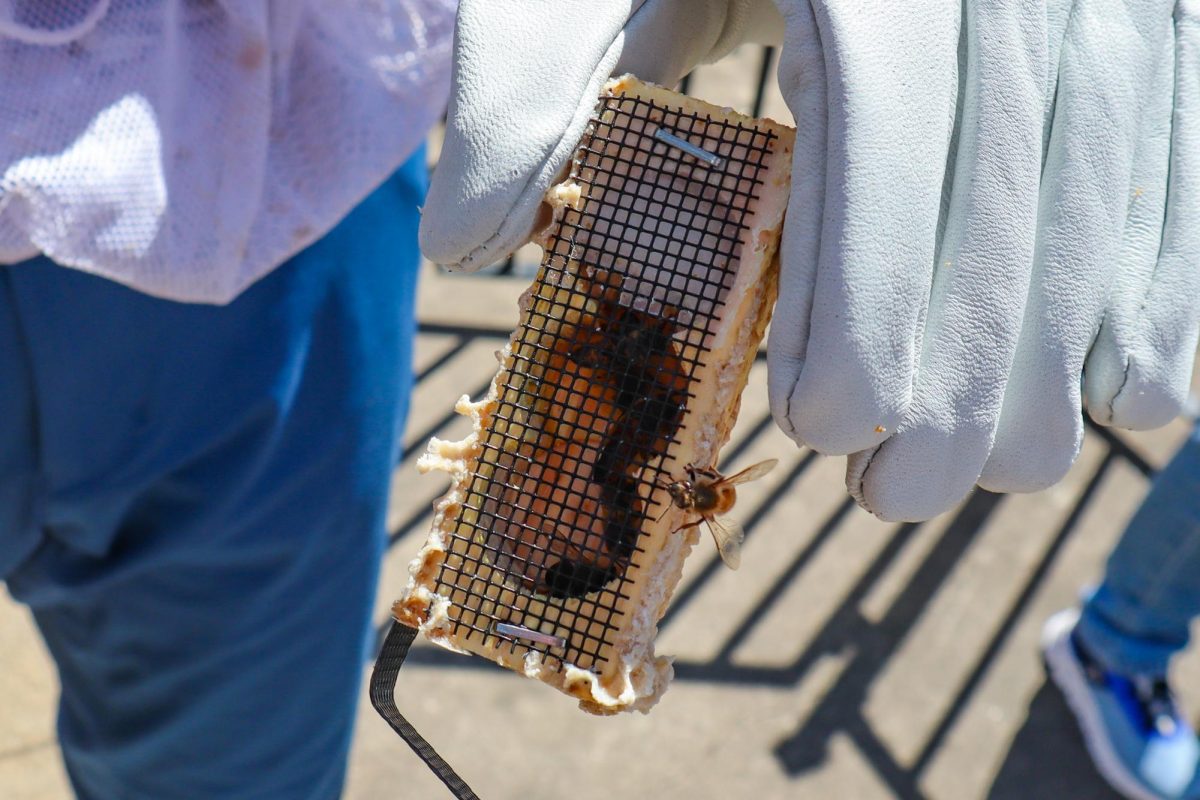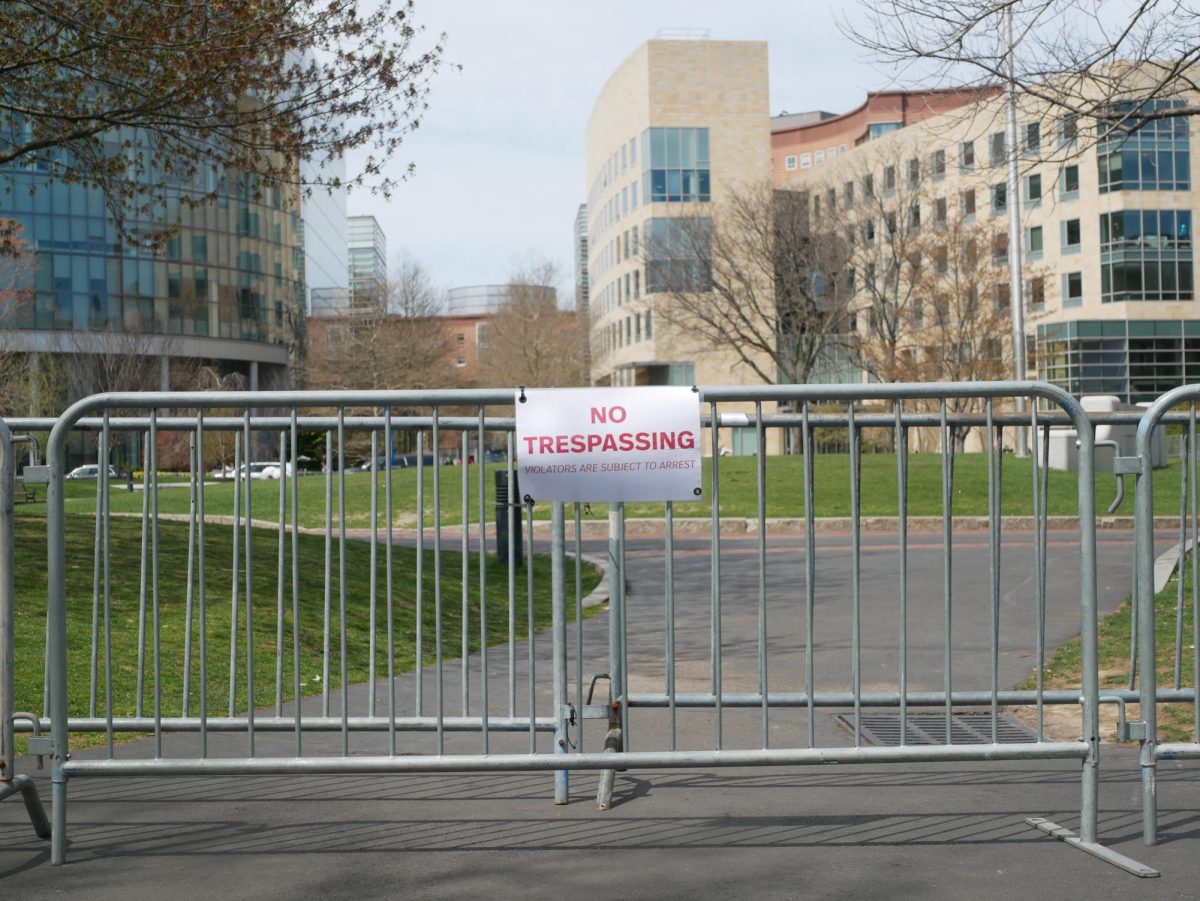By Emily Unsworth
In February 2002, Journalism Professor Belle Adler flew to Kenya to produce a documentary on the problems of poaching in Africa, entitled “Operation Animal Shield.” Adler, who has won two Northern California Emmy’s for her work, showcased clips from the documentary Thursday in Shillman Hall, and spoke about her experience there as an observer and also as a producer. Adler, who worked at CNN for nine years as a producer and editor, has been working and producing independent documentaries for the past five years. Adler said getting the chance to work on this documentary was “serendipitous,” and that being in the right place at the right time is key.
Adler said the idea of “Operation Animal Shield” was to create an educational documentary that gave others the opportunity to see what a huge problem poaching is in other countries. Poaching can be defined as trespassing on another’s property in order to take, injure or kill fish and game, and it is a huge problem on African game reserves, including the one in Kenya where the documentary was filmed.
Adler and her crew were not given permission to do the documentary by Animal Planet until only two weeks before they were scheduled to leave. With a crew of two producers, including herself, one cameraman and one soundman, they left for a month in February, the least rainy and dusty month of the year in Kenya, to begin shooting.
“In 1970, the poaching situation was so grave that there was an international ban on ivory,” Adler said about the subject of her documentary. In the 1970s there were 100,000 elephants in Kenya, and now there are only 22,000. There are also currently less than 500 rhinos left and less than 200 cheetahs.
“Before I traveled to Africa, I didn’t realize poaching was such an organized crime with hardcore soldiers and so internationally coordinated,” Adler said. “I also didn’t realize how dire the situation was. We are talking about not just a few animals, but entire species that are being affected.”
Lea Schmidt, a sophomore journalism major, was shocked to hear the statistics on poaching in Africa. “Documentaries like ‘Operation Animal Shield’ are like wake-up calls for people here in America, who don’t realize what a tragedy poaching really is. I don’t wake up in the morning and think, ‘I wonder how the elephants in Kenya are doing,” Schmidt said.
“‘Operation Animal Shield’ is a reminder that something terrible is going on, and while we probably can’t stop it from happening. We can’t ignore it either.”
The poachers, who use high power automatic rifles to kill their prey, are very sneaky in their ways, Adler said. “The whole process was done in two stages. They would go in during the night, shoot the animals and run away and hide. They would dig up the tusks later when they had the transportation,” Adler said. Adler said the poachers are in it for the money, and after they get the money, they will most likely use it to buy more weapons. Despite all the reserves for wildlife in Africa, Adler said there are still not enough. “Some of the reserves in Africa are about as large as a country, but there is still not enough room for all the animals,” she said. In response to trying to prevent poaching, the film highlighted acrobatic pilots scouring the land in hopes of protecting the wildlife. The idea is that if they are spotted and shot at by the poachers, they will be able to dodge them safely.
When asked what she hoped others would get out of the film, Adler said, “I would like people to understand that there is a connection with what people buy [skins, ivory, etc.] and what is on the other end. It has serious repercussions.” While working under a deadline and trying to get as much footage as possible to get the point across that poaching is a huge problem in parts of the world today, Adler said the crew did have its fair share of obstacles, including getting stopped at the airport and having their camera gear confiscated. However, when asked if she would do it again, she responded with a prompt and eager, “Oh yeah.” “I have seen many other documentaries before that are very dry and hardly entertaining, and this was not one of them. It was fun to watch, and engaging, and wasalso shot very well,” said journalism professor Bill Kirtz.
For those interested in pursuing cinema dreams, Adler has some advice. “Make sure to choose stories that interest you, because it’s tough and lots of hard work. It is basically a labor of love, and you need to love it and make sure it’s worth it, and if it is, then it’s great, and all the hard work is worth it,” she said.
“Operation Animal Shield,” aired in September last year on Animal Planet, and was also run by Discovery International. This event was sponsored by Cinema Studies and the Center for Interdisciplinary Studies.












